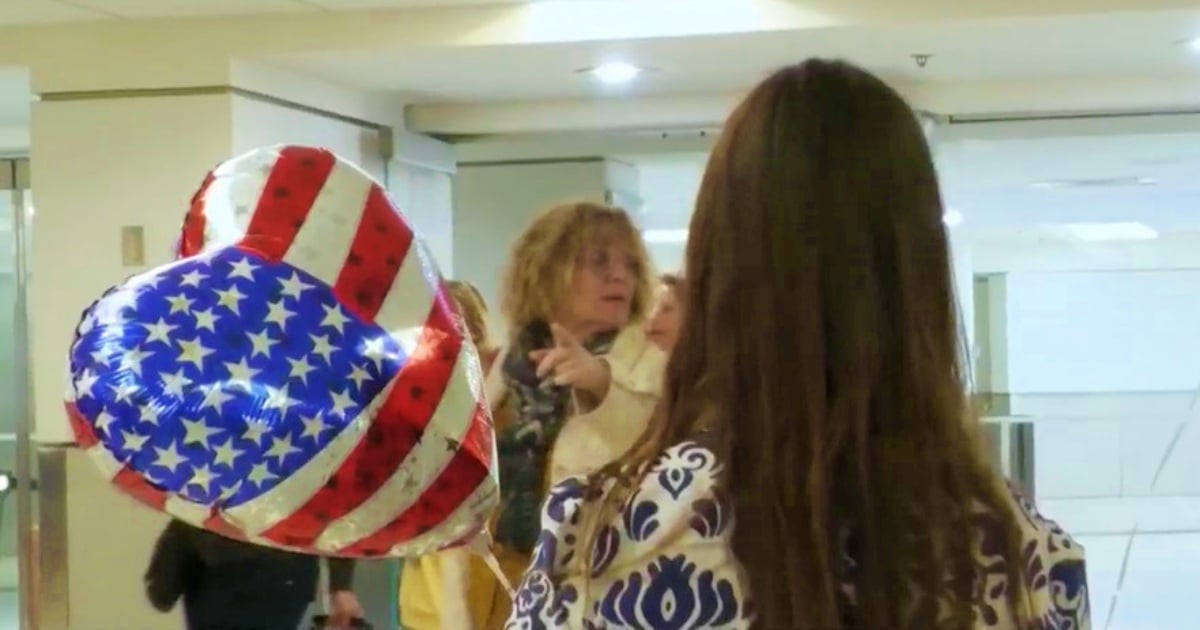
Some of the reasons why the United States government decided to temporarily suspend the humanitarian parole program were revealed in an internal report from the Fraud Detection and National Security Directorate of the U.S. Citizenship and Immigration Services (USCIS).
The document, which reveals significant levels of fraud in the application to this program of the Biden administration, indicates that for Cubans, Haitians, and Nicaraguans it had been suspended since July 18, 2024, while for Venezuelans the suspension was set from the 6th of the same month.
A spokesperson for the Department of Homeland Security (DHS) told Fox News on Friday that "as a precaution" they have suspended the issuance of advance travel authorizations for the program while they proceed to thoroughly review the applications from sponsors, which is where the focus of fraud lies.
The investigation detected false information in thousands of application forms (I-134A), with a consistent repetition of social security numbers, addresses, and phone numbers, without verifying the information provided by the sponsors, summarizes the blog Café Fuerte.
In this review conducted by USCIS, as of April 17, 2024, there were 2,622,076 applications. Of that number, nearly 529,000 applications were "confirmed" (or approved) and about 118,000 were "not confirmed" (or denied).
The researchers observed that there are at least 100 IP addresses that represented 51,133 of the I-134A application requests submitted, which means that the same IP address was used multiple times. For example, an IP address located in Tijuana, Mexico, was used 1,328 times. In this regard, the report indicates that, on average, each IP address associated with these programs submitted 2.2 application forms.
Another point of interest was the Social Security Numbers (SSN) of the sponsors, for which it was found that a total of 100,948 forms had been submitted by 3,218 different serial sponsors. They highlight that the applicants used the Social Security numbers of deceased individuals and provide the statistic that "24 of the 1,000 Social Security numbers most used by the sponsors belong to a deceased person."
At that same point of interest, they note that some sponsors did not provide their income, despite the obligation of this requirement, and some of those who did provide it did not meet the threshold requested by the authorities to support the person on parole.
The phone numbers and email addresses were also scrutinized. In the first case, the phone numbers submitted on the I-134A application forms were used many times. The report states that "a sponsor's phone number was reported on more than 2,000 forms submitted by 200 different sponsors." Furthermore, "a phone number of the parolee was reported on 626 different forms and was associated with 238 different last names of beneficiaries and 142 different addresses of beneficiaries."
The email addresses were also repetitive. In that case, one address appeared on several forms. The report revealed that the email address used by the sponsor most frequently appeared on 363 different forms.
As for the person benefiting from parole, their email address was also repetitive. The one used most frequently appeared in 1,723 different forms submitted collectively by 477 different sponsors.
The responses from the forms were also verified and it was found that the exact same answers were used over and over again. In one case, the same answer was used 4,978 times, while a slightly different variation of the answer (using "she" instead of "he") was used 2,837 times, and another slightly different variation of the answer (using "he") was used 2,557 times.
They discovered suspicious changes in the accounts of the USCIS online service. Some sponsors were changing the names or the applicants for parole, something the report describes as "concerning."
Among the fictitious information used to respond to the form, both by sponsors and applicants, were data such as zip codes, phone numbers, files A [foreign files], and Social Security numbers.
"In total, there are 2,839 forms with nonexistent postal codes. A quick review found obvious errors in the application, as well as potential fraud and eligibility issues that warrant a more detailed examination," the report details.
Similarly, it happened with the phone numbers, whose verification aimed to "determine if the sponsors were sending real telephone numbers."
In this regard, they concluded that the sponsors submitted 1,908 applications using 3,264 phone numbers (including mobile phone numbers and other daytime phone numbers) that appeared to be fictitious (they did not appear in official databases). Another finding was that some were not standardized U.S. numbers; or they had eleven digits and were used more than once.
The following describes how the A-file numbers (a unique number assigned to each foreigner's immigration file) used in many applications were false. This resulted in a total of 1,085 A-numbers submitted in applications that were never issued by the USCIS. These 1,085 A-numbers appear on 4,590 forms. According to the report, a false A-file number was used on 353 different forms.
Furthermore, the report underscores the use of fraudulent Social Security numbers (SSN), demonstrating a concerning trend, especially because similar social security numbers were used (such as "111111111" or "123456789" or "666666666"), which shows that the data provided to the government was misleading.
The government report examines the high number of applications submitted by minors or for gender-related reasons, highlighting that some IP addresses had 86% women compared to men applying for parole. This indicates that the same Internet user filled out numerous forms, many of which were for women under 18 years old.
The report also reveals the repeated use of certain physical addresses. It was found that 100 addresses were used between 124 and 739 times in individual forms, linked to 19,062 forms. These addresses corresponded to mobile home parks, warehouses, storage units, apartment complexes, and commercial properties. There were 739 forms using the address of a single mobile home park, 596 from a single warehouse, and 501 from a storage unit.
What do you think?
COMMENTFiled under: